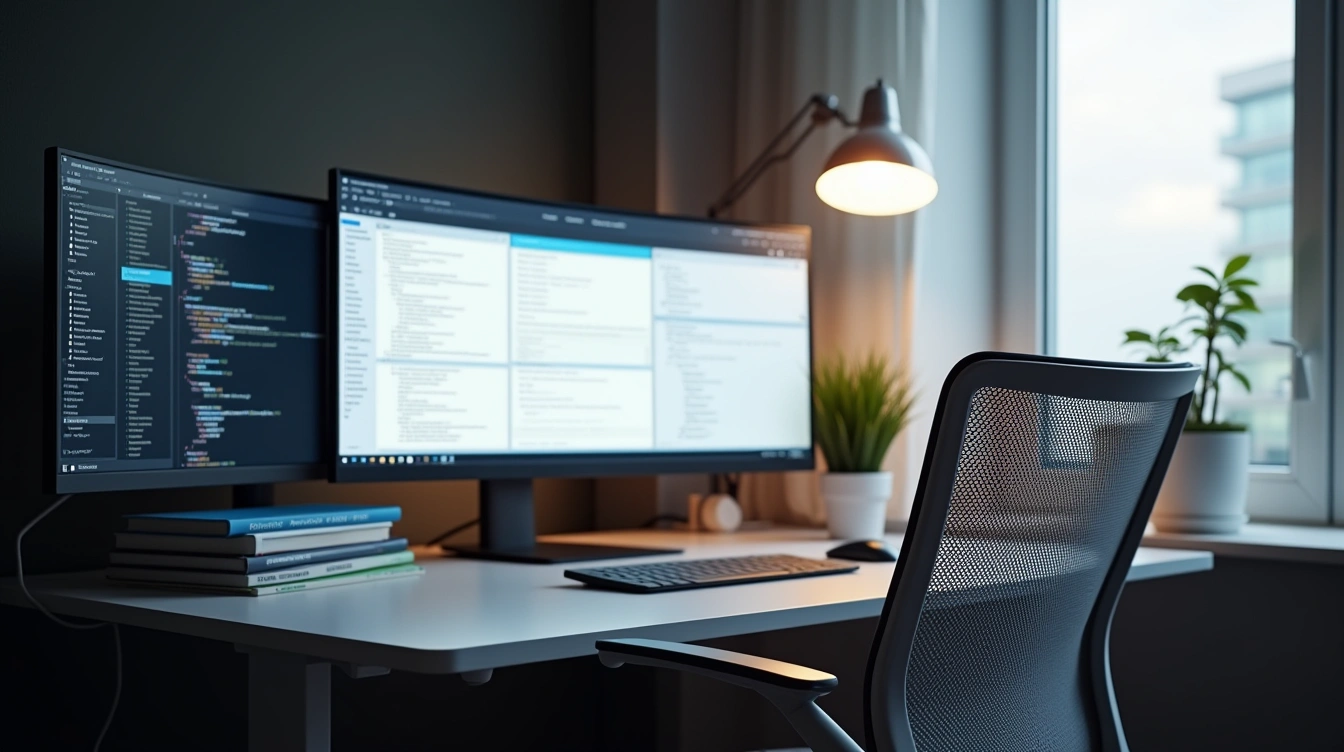Transform Your Creative Workflow with API Solutions for Automated Mockup Generation
The design automation market has surged by 35% in 2024 according to TechReport, yet creative teams still struggle with repetitive mockup tasks that drain productivity. Manual design workflows create bottlenecks that prevent agencies from scaling efficiently. A mockup API can revolutionize this process by automating template generation and integrating seamlessly with existing design systems. How much time could your team reclaim by eliminating manual mockup creation?
Why Automated Mockup Creation Tools Are Game-Changers for Design Teams
Design teams traditionally spend countless hours creating mockups manually, often struggling with inconsistent results and bottlenecks when client demands scale up. This repetitive process drains creative energy that could be better invested in strategic design decisions and innovative concepts.
Have you seen this : Mastering Multicloud Strategies: Streamlining AWS Account Synchronization with CloudFormation StackSets
Automated mockup creation tools revolutionize this workflow by delivering instant consistency across all design presentations. Teams can generate hundreds of branded mockups in minutes rather than days, maintaining perfect visual cohesion while dramatically reducing human error. The time savings alone often justify the investment within the first month of implementation.
For agencies managing multiple clients simultaneously, scalability becomes the ultimate advantage. Instead of assigning designers to tedious mockup tasks, automation allows teams to focus on high-value creative work while maintaining rapid turnaround times. This efficiency boost directly translates to improved client satisfaction and increased project capacity without expanding team size.
Also to see : Harnessing Cross-Region Replication in Amazon S3: The Definitive Guide to Maximizing Data Redundancy and Reliability
The productivity improvements are measurable and immediate. Design teams report 70% faster delivery on presentation materials, enabling them to take on more projects and respond to client feedback cycles with unprecedented speed and professionalism.
Essential Features to Look for in Professional Mockup Automation Platforms
Choosing the right mockup automation platform can make or break your design workflow efficiency. The market offers numerous solutions, but only the best platforms deliver the professional quality and reliability that agencies and businesses demand.
Here are the critical features that separate industry-leading platforms from basic alternatives:
- Photoshop Integration – Seamless compatibility with existing design tools and workflows, allowing designers to maintain their preferred creative environment while automating repetitive tasks
- High-Resolution Output – Professional-grade rendering capabilities that produce crisp, print-ready mockups at various resolutions without quality degradation
- Multiple Format Support – Comprehensive file format compatibility including PNG, JPEG, PDF, and vector formats to meet diverse project requirements
- Flexible Pricing Models – Usage-based pricing that scales with your needs, including free trial options to test functionality before committing
- Comprehensive API Documentation – Clear, detailed documentation with code examples that enable smooth integration and reduce development time
- Reliable Technical Support – Responsive customer service and technical assistance to resolve issues quickly and maintain workflow continuity
These features ensure your chosen platform delivers consistent results while integrating smoothly into your existing processes.
Implementation Strategies: Integrating These Services Into Existing Workflows
The successful integration of mockup APIs into existing design workflows requires a systematic approach that minimizes disruption while maximizing efficiency gains. Start with a comprehensive audit of your current processes to identify bottlenecks where automation could deliver the most impact.
Begin your implementation with the free trial offering of 100 API calls to test functionality with a small team subset. This validation phase allows you to configure initial parameters, test response times, and ensure compatibility with your existing design tools and Photoshop workflows without financial commitment.
Security considerations must be addressed during the configuration phase. Implement proper API key management, establish secure endpoints, and ensure data transmission protocols meet your organization’s standards. Performance optimization follows through load testing and caching strategies to handle peak usage periods effectively.
User training becomes critical for adoption success. Provide hands-on workshops demonstrating the API integration within familiar tools, focusing on practical scenarios your team encounters daily. Progressive rollout across departments allows for continuous refinement while building internal expertise and confidence in the new automated processes.
Cost-Benefit Analysis: ROI of Automated Design Solutions
Understanding the financial impact of design automation requires examining both pricing models and operational savings. Usage-based pricing offers flexibility compared to fixed monthly subscriptions, allowing businesses to scale costs directly with production volume. This approach eliminates the waste of paying for unused capacity during slower periods.
Traditional design workflows consume significant human resources. A single mockup creation process that takes 30 minutes manually can be reduced to seconds through automation. When multiplied across hundreds of designs monthly, this translates to substantial labor savings and faster project turnaround times.
Cost comparison reveals compelling advantages for automated solutions. While traditional design services charge $25-50 per mockup, API-driven automation reduces this to mere cents per creation. The initial investment in integration pays for itself within weeks for most agencies handling regular design volumes.
Risk-free evaluation through free trial options provides 100 API calls without commitment. This allows businesses to test real-world performance and calculate precise ROI before making financial decisions. The measurable efficiency gains typically justify automation costs within the first month of implementation.
Real-World Applications: From Agencies to Enterprise Content Production
Marketing agencies processing hundreds of product visuals monthly have transformed their operations through automated mockup generation. A mid-sized agency recently reduced their design turnaround time from 3 days to 6 hours while handling 400% more client requests, demonstrating the scalable impact of API-driven workflows.
E-commerce platforms leverage these solutions to generate thousands of product variations across multiple marketplaces simultaneously. Fashion retailers create seasonal catalogs featuring the same design across dozens of mockup templates, while electronics companies produce consistent brand presentations for international markets without manual intervention.
Enterprise content teams in tech companies automate their marketing asset production, generating everything from social media posts to presentation materials. Product teams create prototype visualizations at unprecedented speed, allowing for rapid iteration and stakeholder feedback cycles that previously required weeks of design resources.
The pharmaceutical and healthcare sectors utilize automated mockup systems for compliance-heavy marketing materials, ensuring consistent branding across regulatory documents while maintaining the flexibility to adapt messaging for different markets and therapeutic areas.
Frequently Asked Questions about Mockup Automation
How much does it cost to use a mockup API service?
API mockup pricing typically works on a usage-based basis with scalable plans. Most services offer 100 free calls to start, then tiered pricing based on monthly usage.
Can I integrate mockup APIs with Photoshop and existing design tools?
Yes, mockup APIs integrate seamlessly with Photoshop and other tools via plugins or direct connections. This compatibility allows you to maintain your existing workflows while adding automation.
What are the best use cases for automated mockup generation?
Optimal use cases include multi-channel advertising campaigns, mass customer presentations, product catalogs, and visual A/B testing. Automation excels at handling large and repetitive volumes.
How do mockup APIs help scale content production for agencies?
APIs allow agencies to scale by automating the production of hundreds of mockups simultaneously. This frees up designers for creative tasks while still meeting client deadlines.
Is there a free trial available for mockup API solutions?
Most services offer free trials with 100 API calls included. This period allows you to test the technical integration and evaluate the quality of the results before committing to a commercial contract.











